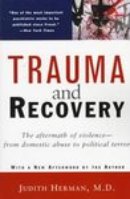|
Post Traumatic Stress
This kind of extreme anxiety and stress occurs as a result of a life threatening, terrifying event. Some of the symptoms that can occur are severe anxiety, anger, depression, guilt, flashbacks, nightmares and uncontrollable thoughts about the event. Post traumatic stress comes from the effort to cope with the intense fear and horror of combat, rape, childhood physical or sexual abuse, being physically attacked or threatened by a weapon, natural disasters, car accidents, to name a few. The difficulty with this disorder is that you many times reexperience the event through unexpected intrusive recollections or dreams of the event. It feels like you are reliving the trauma and torture of the event through flashbacks or hallucinations. It is common to experience intense psychological distress or bodily reactions to triggers that are associated with the traumatic event. Sights, sounds, smells or certain calendar dates that resemble some aspect or timing of the event can trigger the intense symptoms. Individuals with PTSD persistently avoid things that are associated with the trauma. They avoid activities, places, people, or conversations that will remind them of the trauma. They feel detached from others and from their own emotions. They also have persistent symptoms of physical arousal that were not present before the event. Many have trouble sleeping, have a high level of irritability and anger, have difficulty concentrating, are hyper vigilant or have an exaggerated startle response. It is hard to stay in the moment without spacing out or disassociating. It is hard to stay present without being drawn back to the pain and shock of the past. Finally, it is hard to find meaning to life and hope for the future.
Why Remember?
The main reason to remember is to reduce the fear associated with the event. The thought of the event may feel dangerous but in and of itself, there is no danger. It is important to deal with your memories in a safe environment. Writing out your thoughts and memories, drawing pictures depicting aspects of the event and talking out loud to a trusted friend helps you to process the history of your trauma. By continuously avoiding memories, you keep those memories in the present. By processing them, you integrate them into your past and gain a sense of control over the experience and the terror you felt. Processing your memories in safety means that you will be reasonably sure that you will not be harmed by what you remember and that you have protection in that place. You need to stay grounded in the present, as apposed to spacing out or disassociating. Use all of you senses to be aware of your physical body and your physical environment. Find a safe place to do your memory work. Your bedroom, a rocky beach or an open meadow can provide the security you will need to process your memories. Address your memories as past tense not in the present.

Safety includes techniques that will help you through the memory processing. Deep breathing is to slowly breathe in through your nostrils a complete lung filling breath, then exhale slowly through your mouth. Exhale your whole lung capacity then breathe slowly in again. Take a few minutes to breathe to ten (ten full inhales and exhales). Progressive relaxation is another tool you will need to stay relaxed and calm. This is a systematic way of contracting each of you muscle groups separately, one after another, then to feel the relaxing of that muscle group. Many times we carry tension in our muscles that we are unaware of. By tensing separate muscles for 5 seconds then releasing them, we become aware of that tension and the need to relax that muscle group. Some people enjoy meditation or prayer as a way to relax and let go of their tension. Having a safety net or a connection to trusted people in your life is important, so that you can call to discuss what you are processing. Your connection may be a support group, church members, a therapist, a trusted friend or family member. Let them know what you are doing and that you will need them if you are in crisis. It is a good idea to have a phone list of people who can be a part of your support team.
|
Help


